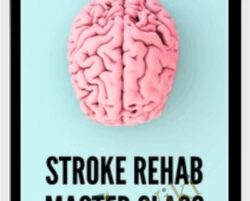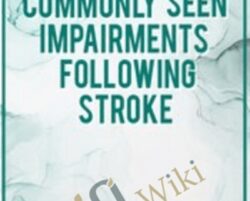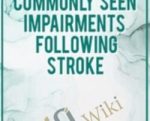Stroke is the leading cause of disability in America. Therapists play a vital role in reducing, or even eliminating, disability resulting from stroke. However, therapists are increasingly pressured to produce better outcomes in a shorter period of time, often with less staff support. The results are generic treatment plans, traditional supine therapeutic exercise prescription, and range of motion or seated group activities. All of these fail to address the impairments keeping the patient from having success in functional life activities.To reduce disability, therapists must be able to improve functional mobility in activities of daily living such as transferring, walking, dressing, and bathing through better assessment and treatment planning. For maximal recovery in stroke patients, you must be able to accurately determine each patient’s specific impairments that are limiting function. From this, you can develop precise, customized treatment plans that prioritize the impairments and reduce disability quickly and effectively.In this one time series, you will expand your intervention “toolbox” by learning to create effective treatments that directly reduce functional limitations for any level of stroke patient, from acute care to community re-entry. This is accomplished without expensive equipment, time-consuming protocols, or labor-intensive techniques. Normal movement requirements are reviewed, which better equip you to efficiently and accurately identify the impairments that are causing dysfunction.Treatment interventions are developed based on motor control and learning principles aimed at integrating cognition, motor ability, and the environment for maximal carryover to functional task performance. An extensive review of treatments to reduce commonly seen impairments is accomplished through by viewing exercises (you can do yourself at home or in the clinic!), demonstration, and video analysis. Implement appropriate treatment interventions for identified impairments using impairment-based treatment framework.Develop treatments and progression strategies aimed at alleviating impairments to improve function.Hemiplegic Upper ExtremityPoor Anterior Weight Translation (Retropulsion)Limited Gluteus Maximus/Medius Recruitment/Sustained ContractionsLimited Quadriceps Recruitment/Sustained ContractionsLimited Proximal Postural ControlIneffective Lateral Weight ShiftsTag: Treatment of Commonly Seen Impairments Following Stroke – Michelle Green Review. Treatment of Commonly Seen Impairments Following Stroke – Michelle Green download. Treatment of Commonly Seen Impairments Following Stroke – Michelle Green discount.
 Stroke Rehab Master Class: Best Practices for Improved Outcomes – Jonathan Henderson & Michelle Green
₹12,450.00
Stroke Rehab Master Class: Best Practices for Improved Outcomes – Jonathan Henderson & Michelle Green
₹12,450.00
 Master Your Money Look – Michelle Money
₹5,478.00
Master Your Money Look – Michelle Money
₹5,478.00
Treatment of Commonly Seen Impairments Following Stroke – Michelle Green
₹3,486.00




